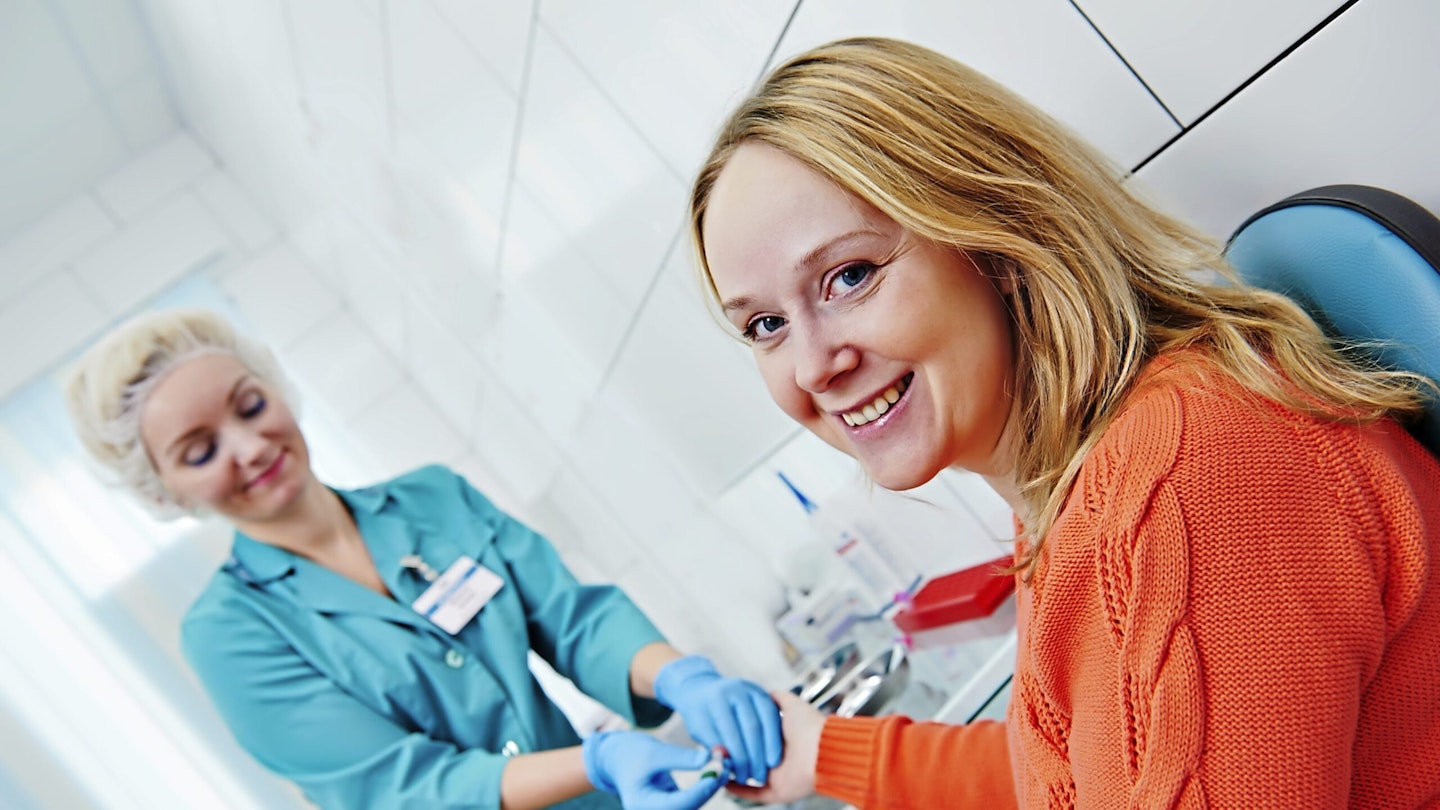Do you know your blood group? It might tell you more about your health than you’d expect…
If someone asked you your height or shoe size, chances are you’d know it. But what about your blood type? According to the most recent research, more than half of us have no idea.
Yet the differences between the groups are interesting.
Currently there are eight main blood groups — A, B, AB and O, with each group either being RhD positive or RhD negative.
Clinical Director at One Day Tests and NHS GP, Dr Adam Staten explains more.
He says: ‘There’s nothing we can do to change our blood group — this is determined by our genes — but there are situations when knowing yours or a loved one’s type can be useful, such as during a medical emergency or if you need an operation. There’s also research that indicates our blood type may impact our risk of certain illnesses.
‘The best way to find out your blood type is to either pay for a private test or to give blood, which is a great way of giving something back as you find out.’
Dr Staten is keen to stress that whatever your blood type reveals you don’t need to panic.
He says: ‘It’s important to remember that the increased risks are relatively small when it comes to blood type. So, while it’s interesting and it might help you stratify your own risk a little, it’s something you can’t do anything about. You’re much better off focusing on the things you can change, such as your diet and lifestyle habits, which are likely to have a much bigger impact.’
Heart disease
Research suggests that compared with blood groups A, B or AB, those with blood type O have a moderately lower risk of developing coronary heart disease (CHD).
Research also suggests that having a non-O blood group is associated with a higher risk of heart attack. However, experts say that more research is needed to identify the cause of the apparent increased risk.
Dr Staten says: ‘When it comes to heart disease, there are key steps we all need to take, regardless of blood type, to reduce our risk.
‘Stopping smoking is vital for artery health and reducing your risk of CHD. Meanwhile eating a balanced, low-fat, high-fibre diet, maintaining a healthy weight, exercising regularly, limiting alcohol and ensuring your cholesterol and blood pressure are under control are all key for improving your heart health also.’
Blood clots
Studies suggest that people with blood types A and B may have higher risks for developing blood clots than people who have blood type O.
Compared with individuals with blood group O, research suggests that blood groups A and B were associated with increased odds for thromboembolic events or developing venous thromboembolism (VTE).
Dr Staten says: ‘Smoking increases your risk of venous thromboembolism (VTE). With VTE, it’s also important to be aware when your risk is higher such as after very long periods of inactivity, such as when you’re sitting on a long plane journey. To reduce your risk in those situations make sure you get up and move about regularly. Keeping yourself well hydrated and wearing anti-embolism stockings can also help.’
Gastric cancers
Results from a recent study suggest that, compared with blood group O, the risk of gastric cancer may be higher in patients with blood group A.
Furthermore, some research suggests that if you have type A, B or AB blood, you may have a higher risk for pancreatic cancer.
Dr Staten says: ‘Again, the best thing you can do to reduce your risk of stomach cancer is to try to quit smoking and to cut down or stop drinking alcohol. Obesity is a big risk factor also. Eating more fruit and vegetables can help reduce your risk as can cutting down on salted foods. Another thing to be mindful of is H.pylori, a very common infection caused by H.pylori bacteria which can cause indigestion, bloating or heartburn symptoms. It’s easy to test for and easy to treat. If you have those symptoms, getting tested and, if needed, treated for H.pylori is an easy but effective way to help reduce your risk of gastric cancer.’
• For more information, please visit onedaytests.com
